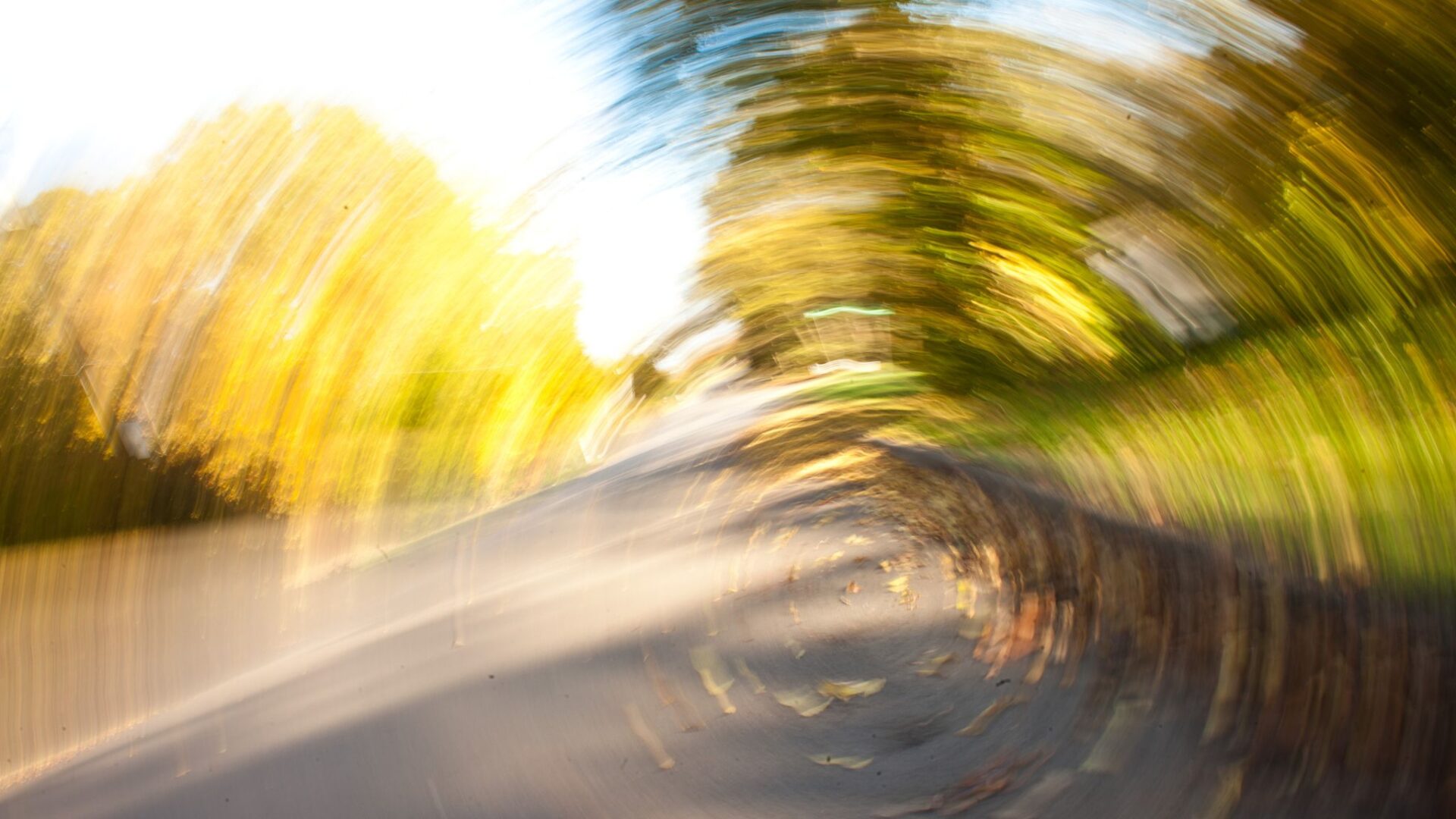How to travel with dizziness
Living with a vestibular disorder is frustrating and can make you feel like you can’t do activities that once came naturally and easily to you. Traveling may be something that once came easily to you that now seems close to impossible. Busy visual environments, patterned carpets (hello, PDX), the anxiety about having a flare, and more can make it more anxiety provoking than fun.
However, I want you to know that it’s absolutely possible for you to travel with a vestibular disorder, you just may need to make a few adjustments!
10 tips to planning travel with a vestibular disorder
Just like with most things in the vestibular world, planning is going to be your friend here. Ask yourself a few questions before you decide what type of travel you’re going to do, and where you may want to go.
- Am I going somewhere new or familiar?
- Is my destination vestibular-friendly?
- Am I traveling alone or with a trusted person?
- What do I need to talk to my doctor about?
- What activities am I going to do when I get there?
- How can my vestibular physical therapist help me prepare for this trip?
- What can I pack to help me manage my symptoms?
- What’s my travel plan when I arrive?
- What mode of transportation am I taking?
- Does my diagnosis prevent my from traveling entirely?
When you have the answer to those questions, you can then consider how you can best support yourself throughout your trip. For instance, if you’re going somewhere like the Coast of California, you won’t have to really consider how the weather may affect you, but if you’re traveling to the East Coast then you may want to prepare to track the weather and treat accordingly.
Does my vestibular diagnosis prevent me from traveling?
In short, the answer to this question is no. However, there are a few factors to consider here. Ears ‘pop’ when you go up and down in elevation, whether it’s a fast elevator or a flight. If elevation changes bother you, then you should prepare for that. Otherwise something like driving or train travel is usually safe.
Safe to travel, in this case, means that you won’t do any extra harm to your vestibular disorder. It does not mean you won’t have a flare. This is why having the answer to the questions above and preparing accordingly is so important.
One last thing to note is 2 vestibular diagnoses that should be more wary of flight. The first is if you are undergoing surgery for superior canal dehiscence syndrome. In that case, you will want to wait the appropriate amount of time post-operatively before flying. Talk to your surgical team if you need to travel right after. The other diagnosis to be wary of it Perilymph Fistula. This diagnosis needs to be considered because sometimes pressure changes can indeed make the condition worse. As always, talk to your doctor.
Rapid elevation changes and your vestibular disorder
Traveling, whether it’s driving, flying, or otherwise, may have rapid elevation changes, this make your ear ‘pop’ and can cause symptoms or cause you to be uncomfortable. And, of course, that’s no fun, especially on vacation. So, how can we mitigate the affects of elevation changes on your vestibular disorder?
- Chew gum or eat while taking off and landing in an airplane
- Wear Ear Planes
- Avoid really high floors of a hotel with a fast elevator
- Avoid SCUBA diving and deep water diving
- Ask your doctor about taking a decongestant for the travel itself, which can help with your ear pressure
- Avoid unpressurized planes (hopper planes)
Planning travel around the weather and your vestibular disorder
Weather can be a really big factor for having attacks with a vestibular disorder. And in a world where we are doing everything in our power to avoid an attack, Mother Nature is not always in your favor. So, what can you do about it?
Track the weather with Accuweather:
- Google “Accuweather [insert city] migraine forecast”
- This tracks barometric changes and barometric pressure overall so you can track the weather and use your preventative treatment accordingly.
Consider where you’re headed. If you have a choice, maybe try somewhere that has fewer pressure fluctuations in general, and maybe somewhere with a temperate climate. This way you can enjoy the weather and your vacation without worrying about the weather. If you don’t have a choice, just pack according to the weather and what you’ll need – and I’m not just talking about clothes. You will also need to consider medications, preventive and rescue treatments, and more for your trip. And that’s okay, nothing a little extra planning can’t help!
Packing for travel with a vestibular disorder
So I know many people who overpack clothes, but not enough of us overpack essentials. Essentials for your day yo day life is what I am talking about here.
Medications
- Count out enough medications for the number of days you’re going, plus 2-3 extra days incase something happens
- Keep the medications, supplements, stimulation devices (like Cefaly and GammaCore, etc.) in your personal item so it’s easily accessible throughout the flight
- If you’re going to be changing time zones, be sure to ask your doctor/healthcare team about what
Nutrition & Hydration
Travel is really dehydrating in general. Bre sure you’re packing food and water with you on the place. You can’t bring liquids into the airport with you, so bring a water bottle with you instead and then fill it up when you get through TSA/security. If you’re driving, try and refill the bottle throughout the day, or bring more than one with you so you have enough to last you the whole trip . It’s really important that packing food that we are packing nutritious food. Road trips make us think (myself included) that we can eat junk and it will be fine. I’m not sure why we do this, but we do. So, instead of waiting for the gas station to stock up, pack food ahead of time and use the gas station for a treat if you want, instead of the other way around.
Tips for car travel
- Do a workout in the morning before the drive
- Get a good nights sleep before
- Eat a solid meal for breakfast before leaving
- Take a break every few hours to take a short walk
- Avoid high traffic hours
- Pack snacks and keep your blood sugar regulated
- Bring water and sip throughout the day
- Pack ginger chews for nausea
- Keep the windows cracked or the A/C on for cool air
- Stare at the horizon to keep your VOR steady
- Try to be the driver, if you’re safe to do so, rather than the passenger
Tips for plane travel
- Chew gum on the way up and down (or pop your ears otherwise)
- Walk while you’re in an airport for exercise and grounding
- Workout in the morning before leaving
- Get an excellent nights rest the night before
- Try to sleep on the plane, and bring a neck pillow
- Use grounding throughout the flight
- Pack a water bottle, I like this one because it has a straw which makes drinking in motion easier. Sip every 10-20 minutes, instead of chugging water
- Try and pick a seat over the planes wings so it’s not as turbulent
- Take extra magnesium with you if that’s a part of your treatment plan
- When you arrive, take a short walk to bring yourself back to baseline
- Try to arrive at night or in the evening so you can eat and head to bed – this will also help with the jetlag
How to manage visual stimuli with travel
Vision can feel like the issue when it comes to vestibular disorders, this is because your ears and your eyes are so connected.
So, instead of being miserable on your trip in stimulating visual environments, let’s talk about what you can do to help!
- Before your trip, ask your physical therapist to help you with visual vertigo exercises
- Join Vestibular Group Fit and use the Visual Vertigo Module to help you acclimate
- Wear tinted sunglasses when you’re outside (never inside) to help with light sensitivity
- Wear Avulux Glasses when you’re inside (and/or outside) to help with light sensitivity (use the code VERTIGODOC for a $25 discount)
Don’t Forget!!
As always, remind yourself that feeling dizzy, off, and generally uncomfortable after a long day of travel is actually really normal. Do the best you can to remind your body that you are safe, secure, and in a fun new place! Focus on having fun and less on what might happen during your trip.
Latest articles

Dizziness Explained: How to Differentiate Between BPPV, Meniere’s Disease, and Vestibular Migraine

The 1 Effortless Way To Differentiate Between Meniere’s Disease and BPPV




